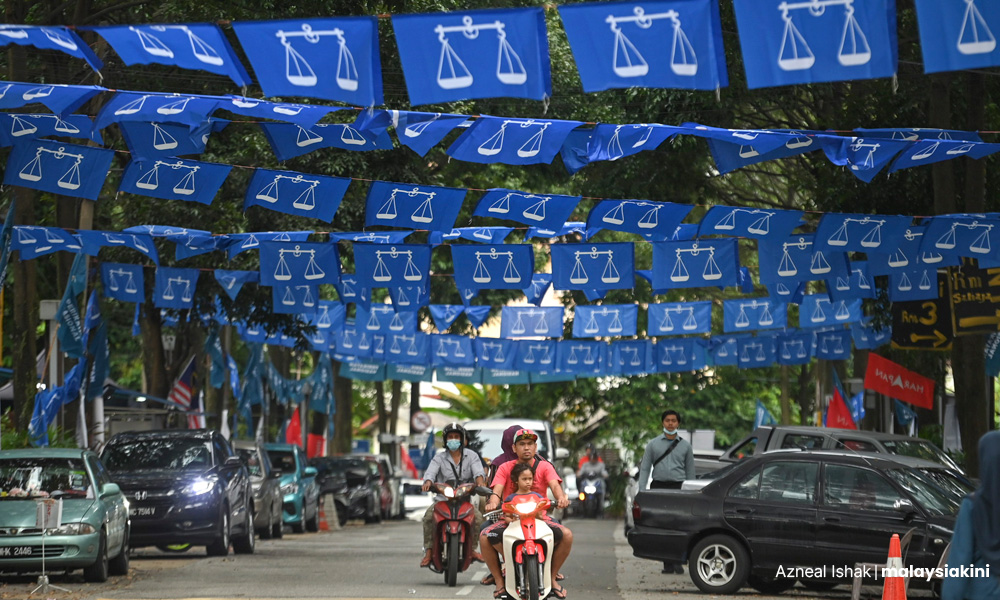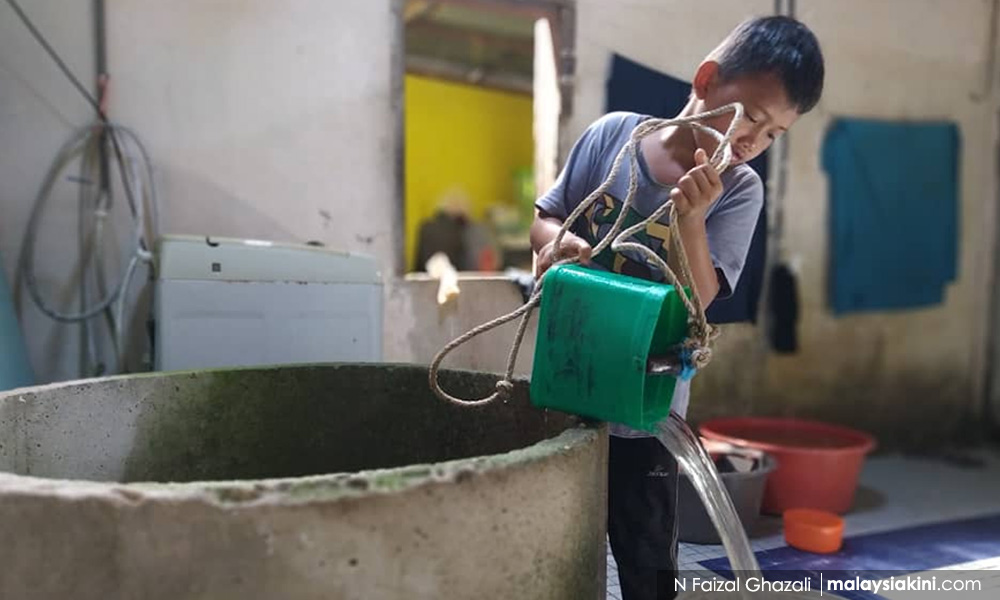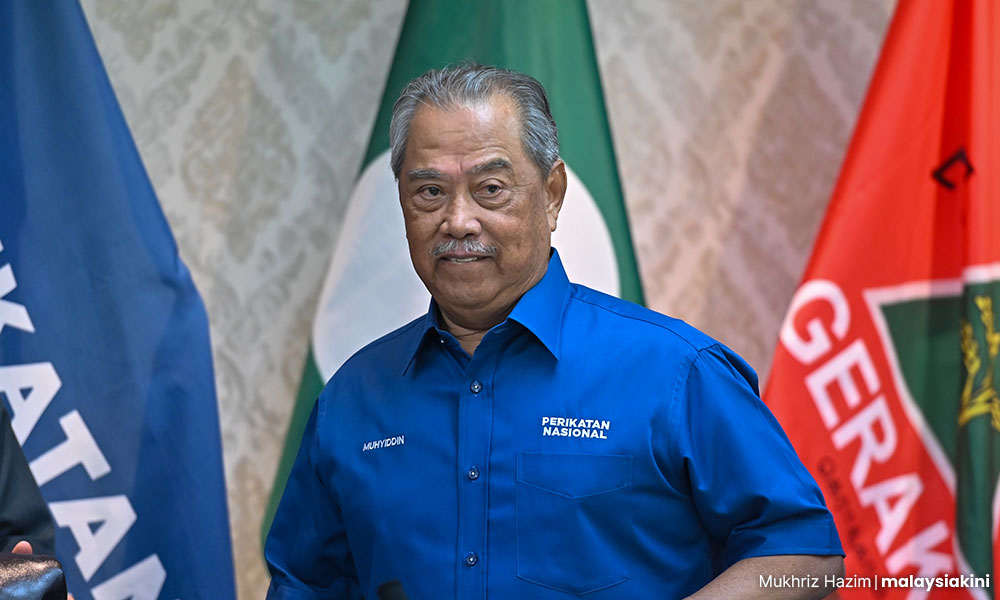So Perikatan Nasional (PN) made big gains in the recent six state elections, even in the Pakatan Harapan "fortress" of Selangor.
Yet PN had a dismal record when in power at Putrajaya for 33 months.
This includes their chaotic management of the Covid-19 crisis, soaring prices (despite their "jihad task force against inflation"), and borrowing like crazy to raise the national debt from RM1 trillion to RM1.5 trillion (who benefited?).
This is on top of PAS' continued failure to solve Kelantan's water supply problems and the alleged theft of rare earth metals in Kedah with very suspicious denials by its caretaker menteri besar.
But voters didn't seem to care about all that. Perhaps they had swallowed the tired old lie that "Malays are under threat" from the "evil" DAP which supposedly controls" the unity government?
And so the “Green Wave” swept Kelantan, Terengganu and Kedah and even splashed deep into Selangor.
What can be done?
Redraw electoral seats
It's time to end the unfair system that benefits rural over urban voters, and create more mixed seats to reduce toxic racial politics.
For example, in Selangor, Subang Jaya has about 75,000 voters while Sungai Air Tawar has only 15,000 voters. This means that one urban vote is five times less valuable than one rural vote.

The disparity between rural and urban votes is clearly undemocratic, as it betrays the basic principle of "one person, one vote".
The same pattern is repeated elsewhere. Rural seats like Sabak (22,000 voters) and Hulu Bernam (21,000 voters) have an unjust advantage over urban areas like Kajang (78,000 voters) and Kinrara, Puchong (88,000 voters).
This means that voters in areas like Sabak can elect four representatives while a place such as Kinrara only has one.
Should the country's future be largely determined by the less educated, more conservative and poorer rural voters? While discriminating against more educated and open-minded urban voters who contribute most of the income tax revenue of the government?

As the old saying goes - no taxation without (fair) representation.
Since Harapan and its BN allies have clearly done better in more urban or mixed seats, it's also in their self-interest to redraw election seats.
So what's stopping them from this crucial reform for fairer representation?
Ah yes, the old racial arguments. But this is no longer the 1970s. In the 2020s, our cities have become much more racially mixed.
For example, Kuala Lumpur itself has "Malay parliament seats" like Setiawangsa and Titiwangsa. Thus, the electoral manipulation also hurts urban Malay voters.
Large urban areas can also be sliced up like a cake to include surrounding rural areas to create more racially mixed seats.
When a politician has to appeal to a mixed electorate to win, the rhetoric cannot be the same old toxic themes of race and religion. Rather, it has to be about progress for all. Surely, that is the best way for Malaysia to move forward.
To avoid any "allergic reaction" against DAP - let PKR, Amanah or BN contest most of the new mixed seats.
Marketing the reforms
DAP veteran Lim Kit Siang has said Prime Minister Anwar Ibrahim needs to address economic issues that led to PN gains.
Sure, there were big announcements, just before the state elections. of the National Energy Transition Roadmap (NETR) and Madani Economy framework.

But in his ceramahs, Economy Minister Rafizi Ramli admitted there was criticism that these seemed like convenient pre-election goodies.
So why weren't they announced earlier? Rafizi explained that the new government needed to do a lot of groundwork to draw up the policies.
This seems to repeat the mistake of the first Harapan government of 2018, when they were too busy working on policies and neglected to “sell” them to people.
This allowed people like PN chairperson Muhyiddin Yassin to claim that Anwar's government had done little to help the Malays.

Like it or not, good reforms are not enough. They have to be properly marketed to voters, especially the young TikTok generation. This includes a good build-up (teasers and previews) before the policies are actually rolled out.
Other ideas
There are so many other things needed to address the root causes of the “Green Wave”.
While former prime minister Abdullah Ahmad Badawi promoted his moderate brand of Islam Hadhari, I have not heard of a similar push under Anwar.
Surely, the fact that “assabiyah” (factionalism) and “fitnah” (slander) are wrong in Islam but it became part of a concerted campaign, with prominent influencers on social media, especially TikTok.
Next comes education. For example, historian Ranjit Singh Malhi has lamented that the crucial contributions and sacrifices of Chinese tin miners and Indian rubber tappers to the development of this country have been reduced to just a few sentences in the Form 3 history textbook.
With such one-sided knowledge, it's hard for Anwar to preach that this country should be shared by all races.
Finally, PN claims to be "clean" even though its leaders, including Muhyiddin, have been charged with corruption.
But voters seem to have bought his claims that he was a "victim" of "selective political prosecution". So what will it take to change the "immaculate", indeed almost "holy", image of PN? - Mkini
ANDREW SIA is a veteran journalist who likes teh tarik khau kurang manis. You are welcome to give him ideas to brew at tehtarik@gmail.com.
The views expressed here are those of the author/contributor and do not necessarily represent the views of MMKtT.




No comments:
Post a Comment
Note: Only a member of this blog may post a comment.